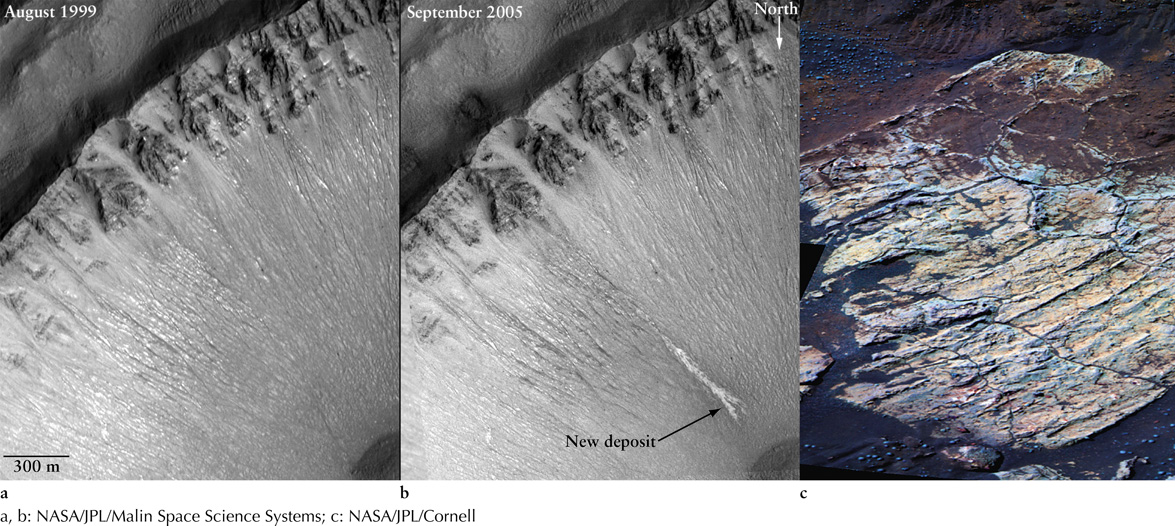
Figure 7-39 RIVUXG Martian Gullies (a, b) Two images of the same southern hemisphere crater on Mars taken 6 years apart. Whether the new deposit was initiated by ground vibration or by a short period of liquid water flow from inside Mars is still under investigation. (c) Polygonal cracks are visible in this Opportunity image of Escher Rock. They were believed to have formed when this area was flooded. Water seeped into the rock, which cracked as the water froze, expanded, and then sublimated away.